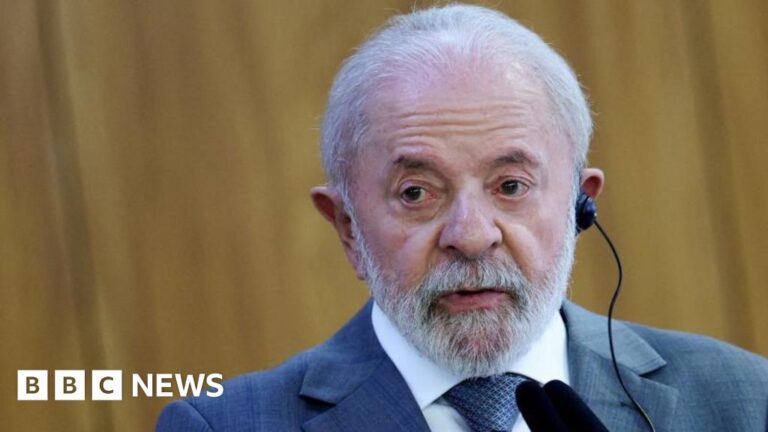The American conservative movement has long worked to put the nuclear family at the center of cultural and economic life. Lately, it has added a twist. It wants to make those families bigger.
Fertility rates have declined, and a “pronatalist” cluster on the right wing has been making the argument that public policy should encourage more childbearing. With President Trump’s return to office, this group appears to have gotten closer to the center of power than ever before.
The pronatalist cluster wants measures like more support for families with several children; speedier and cheaper options for higher education that would allow Americans to start procreating earlier; help for those having trouble conceiving; and initiatives that elevate childbearing to a national service.
Steps like the move by Transportation Secretary Sean Duffy, a father of nine, to direct federal funds toward places with high marriage rates and birthrates are exactly what many have in mind.
Movement on their priorities, however, has been slow. And in some cases, pronatalists have found the White House’s actions counterproductive.
“Suddenly, so much has happened, and so much has been such a mixed bag,” said Patrick Brown, a fellow at the conservative Ethics and Public Policy Center who is focused on family policy. “That’s going to be the tension, that angel on one shoulder and the devil on the other. At this stage, the devil seems to be winning out.”
The first two months have been crowded with efforts to fulfill Mr. Trump’s campaign promises: mass deportations, steep tariffs, retribution against his perceived enemies, sharp funding cuts, and an aggressive deconstruction of the administrative state.
There hasn’t been much time left for family policy. Pronatalists cut the administration a lot of slack, hoping that their time will come, too. But they also have a messaging challenge: The movement does not speak with one voice, and even the term “natalism” means different things to different people.
Vice President JD Vance has long criticized the childless and explicitly endorsed “more babies in the United States of America,” as he put it at this year’s Right to Life March. The billionaire Elon Musk, a top Trump lieutenant, has fathered at least 12 children with at least three partners as part of his belief that depopulation is the biggest threat to human civilization; he posts frequently about “population collapse” on his social media platform X.
Although they might sound aligned, Mr. Vance and Mr. Musk represent two distinct and sometimes conflicting factions within the movement.
Mr. Vance’s camp, motivated by religious values and present in several socially conservative Beltway think tanks, focuses strongly on the family unit as the essential building block of society. This group also cares not just about the number of children, but also how families are created. Some pronatalists have celebrated Mr. Trump’s actions to stamp out transgender identity, saying that enforcing traditional gender norms is important to family formation. Many are skeptical of in vitro fertilization as a way to help infertile or same-sex couples, for example, or single women who want to raise a child on their own.
The other camp is more aligned with the viewpoint Mr. Musk has articulated. Rather than religious belief, they are motivated by a fear that humanity will not replace itself, strangling economic dynamism as a dwindling work force strains to support the growing large families makes plenty of people queasy. Groups like Population Connection worry that the tactics required to raise birthrates can verge on authoritarianism, and believe that the consequences of population loss aren’t as catastrophic as pronatalists make them out to be. And increasing numbers of young people do not want to burden the planet by having children of their own.
Although the movement wants the administration to establish a commission to elevate and study the subject, as well as to infuse their priorities across the federal government, some prominent members of the group consider the Department of Government Efficiency’s broad cuts are diminishing resources that could instead be diverted toward their priorities. The implications of Mr. Trump’s broader agenda are not uniformly positive for larger families, or the incentive to build them.
Another way in which Mr. Musk may be making it more difficult to raise children is return-to-office mandates for federal employees, ending an era of workplace flexibility that helped parents with desk jobs juggle work and children. “Certainly telework is pronatal,” said Daniel Hess, a father of six who writes about fertility on X under the handle @morebirths.
While some pronatalists celebrate Mr. Trump’s crackdown on immigration as a step toward safer communities, lower housing costs, and potentially higher paying jobs for Americans, economic evidence suggests those are unlikely outcomes. Moreover, slowing the flow of immigration may depress birthrates because foreign-born residents both tend to have more children (at least for now, as birthrates fall in Latin America). And immigrants often help American citizen parents take care of their children.
Source link




